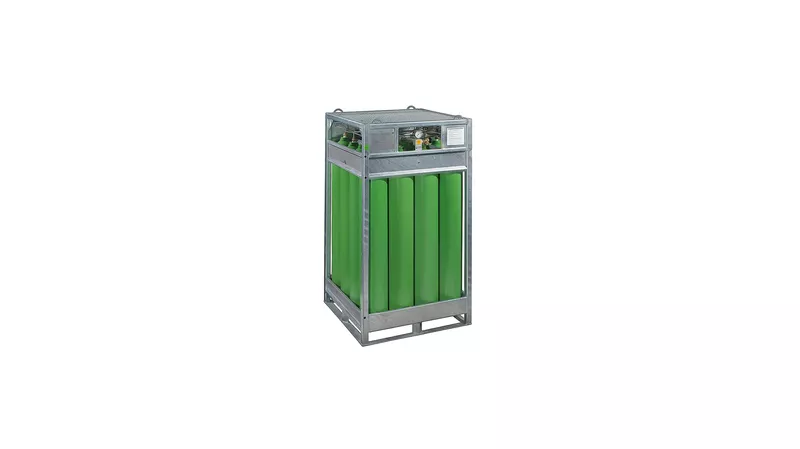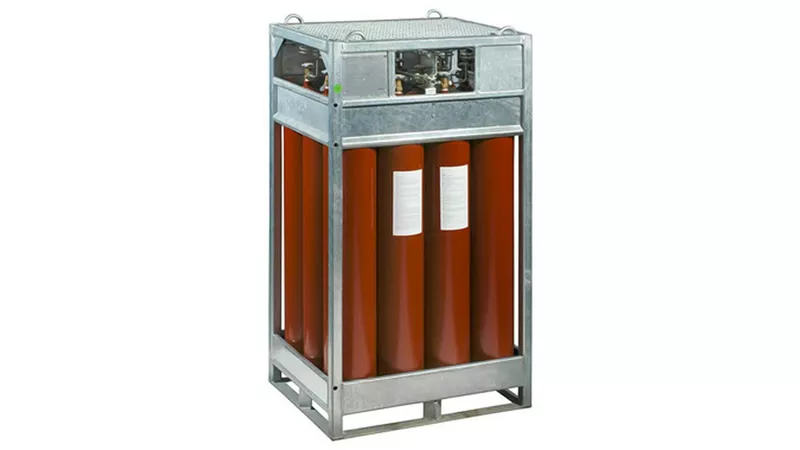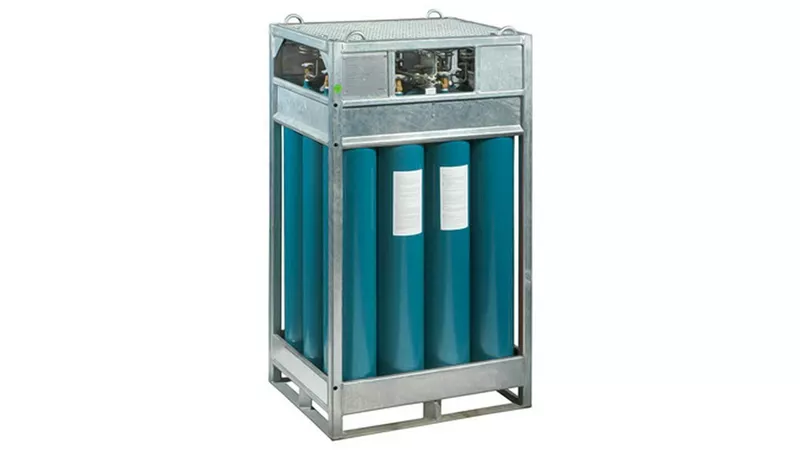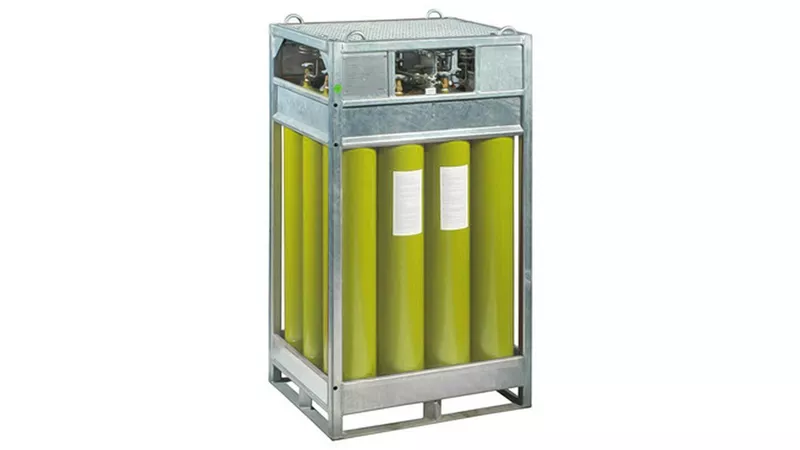Bundles
High-Pressure gas bundles
Hexagon Purus high-pressure gas bundles were developed in 1993 in the legacy Wystrach business. The product has been developed over the years to improve it for users and today’s design boasts a robust steel frame, flawless weld seams, and a user-friendly control unit. It’s a lightweight, well-designed product that reflects the culmination of our combined experience and passion.
You will find technical details about our bundle product family here.

Key features
1. Unique piping eliminates heat penetration zones: no weld seams in the piping
2. Pivoting lifting eye is bolted on – involves less inspection work than weld seams
3. Grille protects pipework and prevents waterlogging and snow loads
4. Fully galvanized frame; powder coating also available on request
5. Safety information is always visible and protected from damage; large surface for customers to affix their own label
6. Deflectors facilitate forklift handling
7. Plastic inserts keep the cylinder from coming into contact with the frame – no contact corrosion
8. Standard frame, even for cylinders of different heights
9. Framework is robust, lightweight, and highly stable
10. Stabilizing clamping strips are bolted in place, not welded
Questions? Send us your enquire about our gas bundles
E-Mail →Hexagon Purus ASA
Haakon VII's gate 2
0161 Oslo
Norway
Imprint
Patents
Subscribe
Terms and Conditions
 © 2024 Hexagon Purus
© 2024 Hexagon Purus








